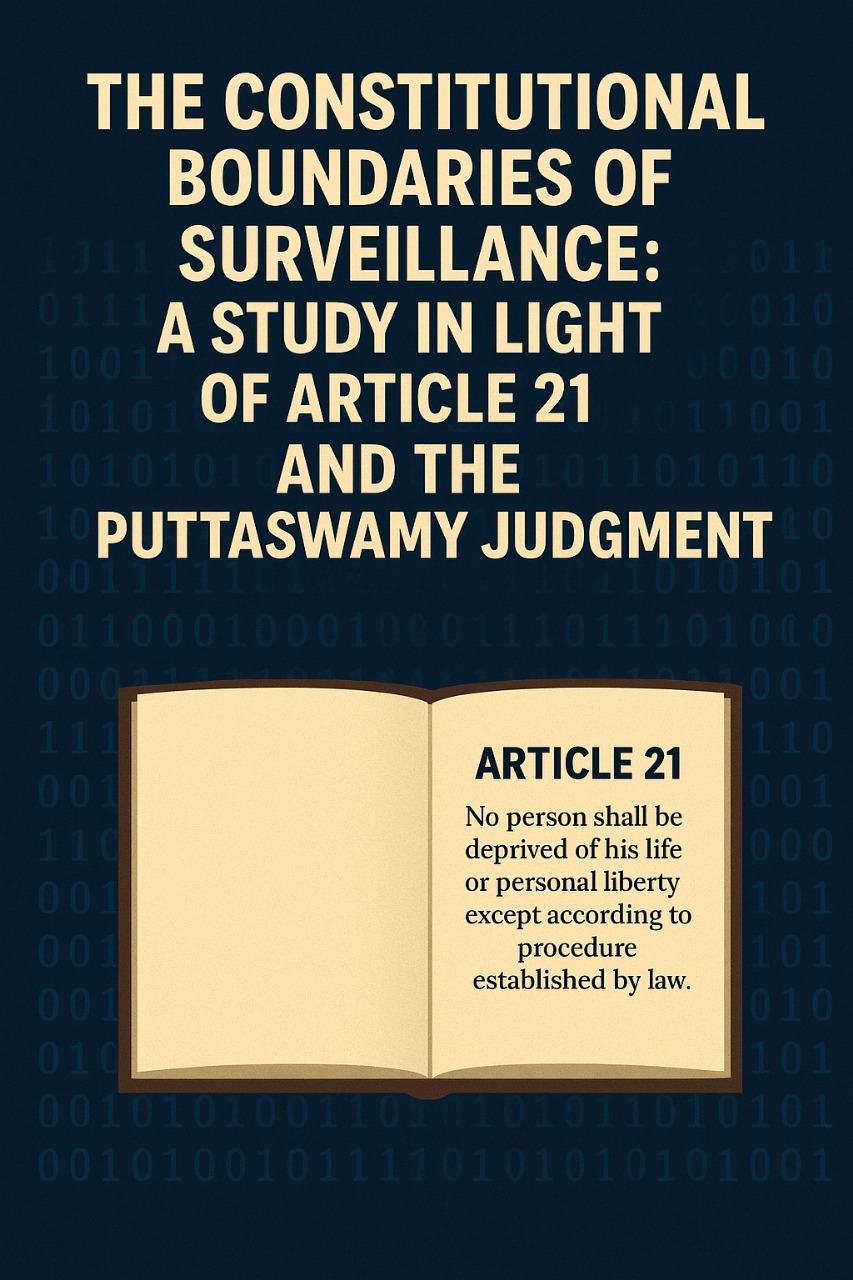Introduction
Article 19(1)(d) provides all citizens with the fundamental right to move freely throughout the territory of India and Article 21 of the Constitution provides all persons with the right to life and personal liberty, including the right to privacy. However, recent statements of Sonam Wangchuk’s wife’s statements in the Hon’ble Supreme Court regarding being followed in Delhi, not being allowed to visit her husband without being observed by officers, and not being allowed to meet anyone else in Jodhpur warrant a deep dive into the intricacies of the these rights provided by the Indian Constitution.
Freedoms Provided By The Constitution
Article 19(1)(d) provides that all citizens of India have the right to move freely throughout the territory of India subject to the restrictions mentioned in Article 19(5) which states that movement can be restricted for general public interest or for protection of the Scheduled Tribes.
Furthermore, Article 21 provides every person in the territory of India the right to life and personal liberty, which goes on to encompass the right to privacy as held in the case of K.S. Puttaswamy v UOI
Restrictions on Right to Privacy
Surveillance – physical or electronic – is a restriction on the right to privacy under Article 21 of the Indian Constitution. However, there are certain scenarios where such surveillance can be justified.
For example, under the Indian Telegraph Act, 1885 provides for interception of messages if it is necessary or expedient for the protection of the security of the state, sovereignty and integrity of India, friendly relations with foreign states, preventing incitement of an offence or to maintain public order.
Furthermore, under the National Security Act (the act under which Sonam Wangchuk has been kept in preventive detention) the state is allowed to surveil suspects to prevent threats to public order and security of the state. However, such surveillance is also limited.
The K.S. Puttaswamy Test
In the landmark case of K.S. Puttaswamy, the Hon’ble Supreme Court laid down the test for reasonable restrictions on the right to privacy. The Court outlined a three-fold test. It first stated that there must be a law that authorises such surveillance, without a legal foundation, the surveillance is a breach of the right to privacy.
Further, the court stated that there must be a legitimate aim to the surveillance, that is, the surveillance must be to prevent crime, ensure public order, or to protect the security of the state and protect the sovereignty and integrity of India.
Lastly, the surveillance measures taken must be proportional and necessary. They must be least intrusive and should not venture into the realm of harassment.
Prison Security and Surveillance of Visitors
According to the Model Prison Manual, the monitoring of jail visits by officers is permissible to prevent contraband, coded communication or to maintain discipline in the prison premises. Officers are allowed to monitor in a non intrusive manner and only for security purposes. Further, the officers must always be out of hearing distance. Furthermore, it was held in the case of Francis Coralie Mullin v. Administrator, Union Territory of Delhi that even persons detained under preventive detention have the right to meet family and legal advisers.
Conclusion
It is yet to be seen what the Hon’ble Supreme Court will make of the statements of Sonam Wangchuk’s wife, Gitanjali Angmo, and what directives will be given to the concerned authorities with regards to the alleged actions and overreach. However, the right to privacy is a fundamental right under Article 21 of the Indian Constitution and must be protected.
About Author
Anwita Mishra, a law student at Maharashtra National Law University, Mumbai, is an emerging legal writer with a keen interest in the changing dynamics of law. Deeply passionate about Media Law, Constitutional Law, and Family Law, she engages with contemporary legal developments through insightful research and writing.

